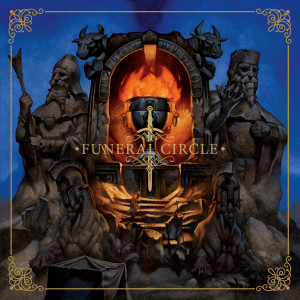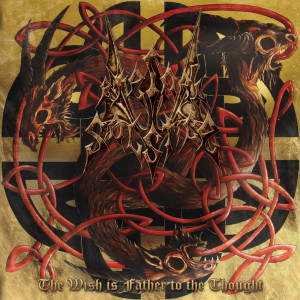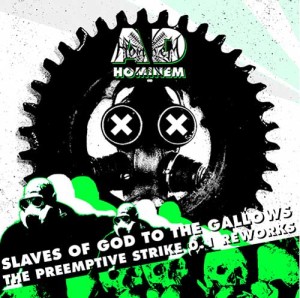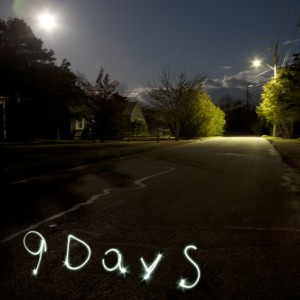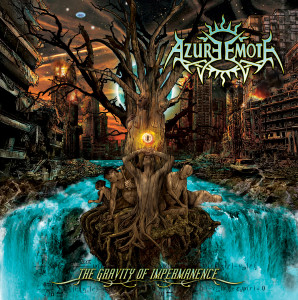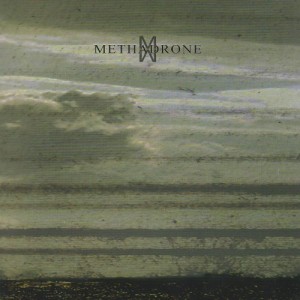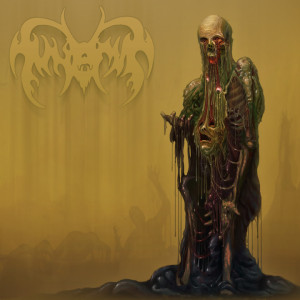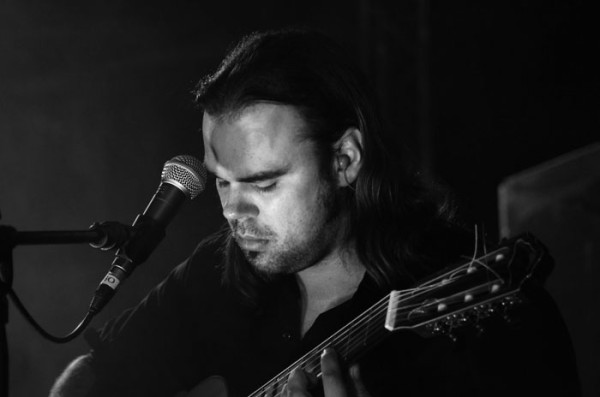
The mysterious entity known as Empyrium has attracted its share of attention over the years by upholding the strongest nature-mystic tradition in metal, and dark ambient into which it migrated.
Like other nature mystics in metal, Empyrium expand the metal lexicon with lush dark organic soundscapes and dynamics that more represent the whims of nature than the mechanical sounds of city or ideology.
Into the Pantheon shows Empyrium in a live setting, both with a concert DVD and a documentary film made about the band and this event. Eagerly awaited by fans who remain loyal to this publicity-shy act, Into the Pantheon delivers a subtle but powerful live experience.
We were fortunate to be able to catch up with Markus Stock of Empyrium for a quick interview.
How did Empyrium come about? Did you have a concept when you went into this practice, or did it develop naturally?
When we started Empyrium back in 1993 we were just 15 year old kids and didn’t have a detailed plan or concept whatsoever at first. We just followed our heart and made music that came naturally to us…now, 20 years later, we still follow that rule, but of course we are much more experienced and skilled these days.
Were you influenced by past metal bands who’ve used acoustic instruments among the distorted guitars, like Cemetary and Pyogenesis?
Yeah, we were. I loved the first Pyogenesis MCD (on Osmose) when it came out. Big influences also were My Dying Bride, early Paradise Lost, very early Cradle Of Filth, Darkthrone and Emperor (especially their unbelievable split with Enslaved).
Some have hypothesized that metal is in a slump, and for it to break out, it’s going to need to get closer to genres like classical or folk music where there’s a greater range of instrument used, thus more musical possibilities. Did you have a similar idea in your own path?
Actually, no. Today I don’t view Empyrium as a Metal Band anymore. We have influences from many, many genres and styles of music. I think the whole “let’s mix our metal with folk/classical/hip-hop/funk/whatever” went a little overboard and today I enjoy Metal much more when it retains some purity of the genre. Nothin wrong with some classical elements or keyboards but the electric guitar and the pounding drums should be the centerpiece of a Metal Band.
Into the Pantheon is an immaculate concert with high technical performance but also emotional intensity. How did you practice for this? And how much did you just “wing it” to keep the mood strong?
We practiced alot. I wrote a score for each live musician involved so they could prepare themselve at home and then we rehearsed about a week in a smal venue that was rented for us. It was important to me to be well prepared.
Do you see an affinity between yourselves and other atmosphere based metal bands like Summoning?
Oh yes. I loved the whole Summoning stuff. I hear they made a new album I need to check that, though I find it hard to retain this kind of 90ies atmospheric today.
Most would identify your style as some kind of doom metal, like My Dying Bride or Paradise Lost, but at the pace of a funeral doom band, like Skepticism or Winter. What made you choose the tempi at which you play, and what does it suggest, artistically?
Like mentioned earlier I can see influences and similarities to bands like Paradise Lost and My Dying Bride in our very early works but Skepticism or Winter? Definitely no.
Empyrium has a reputation for being secretive. Are you secretive? If so, why?
No I am not. This is because we haven’t played live in more than 15 years of band history. But, I am not lurking in a cave, deep in the woods, pondering in solitude and silence over my future plans.
Metal bands seem to have this life cycle where they start out with fresh ideas, and then become more like their influences, then get big and quality plummets after that. Have you observed this? How will Empyrium beat this cycle?
We have actually finished a new album and with a break between the last album and this one of almost 10 years – believe me, if you follow your heart and do the music that comes out of you it will be fresh again.
In addition to the live concert, there was a DVD made about the band. How did this come about? What did you think of the final product?
I think it’s a nice addition to the live part of the DVD and was a lot of work. Personally I can’t see myself talking over such a long period of time but fans will definitely love the detail and the work that went into this documentay,
Once this DVD and documentary hit the stores, there’s going to be a reaction. How much does it influence you? Will it inspire you to tour, or release more music?
There will be no tour with Empyrium. A few selected live appearances but no tour. As mentioned earlier we have a new album in the pipeline to be released maybe early next year.
What are your non-musical influences? Are there works of art or literature that capture the vision you’re trying to create in sound?
Of course. Movies, literature, paintings – everything I consume inspires me. Nature and landscapes have always been a big influence on Empyrium. Past, present and future.
It must be challenging to integrate so many instruments and voices of such different loudness and timbre into your works. How do you compose your songs? Do you start with an idea, or a melody, or a riff?
It usually starts with just one theme – a small melody or a riff…from there we go and build up a song. With newer Empyrium material it’s is often that a song is based on one single theme and we go from there and build it up, let it collapse again, change small details etc. to make the theme work over the period of the song. You’ll hear that when the new album hits the streets.
In your view, what is heavy metal “about”? Does that change for doom metal?
Heavy Metal is about energy to me. Wild, touching, deep and archaic emotions at the same. As mentioned earlier, I don’t see Empyrium as a Metal band – we are more about the silence and the thoughts that come to you in silence. It’s much more introverted versus the the extroverted spirit of Metal.
4 CommentsTags: atmospheric metal, Doom Metal, empyrium, melodic metal, nature mystic
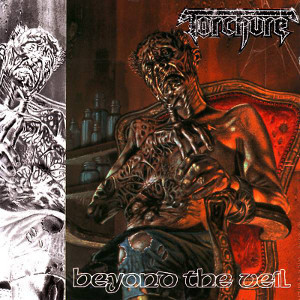 Vic Records re-issues the first album of German death metal band Torchure, whose style of heavy metal infused thunderous death metal saw favorable comparison to early Therion, Morgoth and Miasma.
Vic Records re-issues the first album of German death metal band Torchure, whose style of heavy metal infused thunderous death metal saw favorable comparison to early Therion, Morgoth and Miasma.